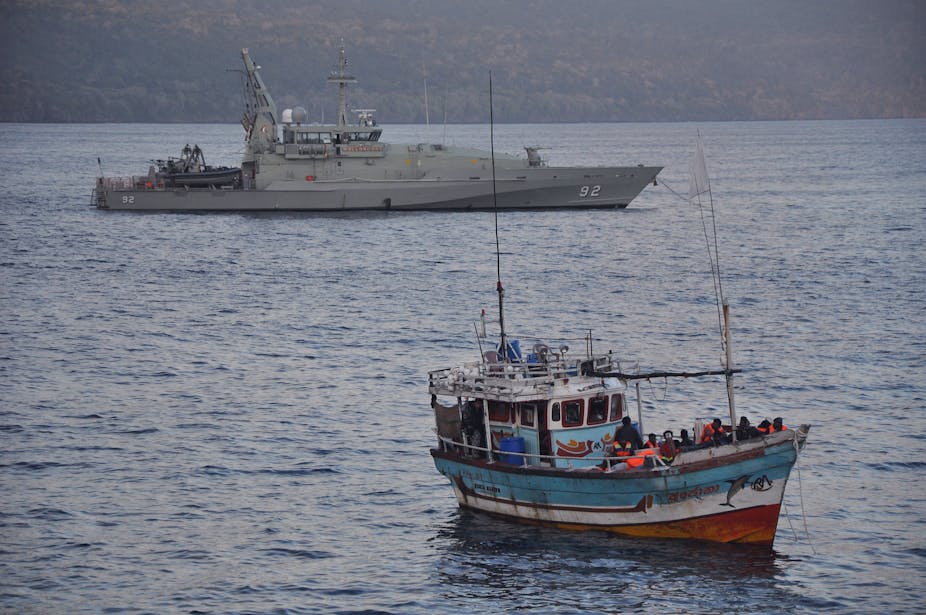Australia, like all coastal states, is under an absolute obligation to undertake rescue at sea wherever and whenever necessary.
It is not, however, immediately apparent that this is the case. A question of law is determined by the way one frames the problem at hand. If one were to assess our obligations by looking at formal treaties, then border issues and sovereignty would dominate.
If one looks at sea rescues through the lens of unwritten international custom and state practice, as well as “best” industrial shipping practice, then the “answer” is quite different.
Australia is in breach of international customary law if it deliberately fails to rescue in situations where it has clear knowledge of the stricken vessel’s distress and where mounting a safe rescue operation is practically feasible, even if it must be conducted within Indonesian territory.
In my opinion, far too much of the current debate over the duty to rescue at sea — and liability for failing to do so — is bound up with questions of sovereignty and territory. All too often, legal considerations of this kind become exercises in bad faith. Australia, which is moving towards an increasingly restrictive approach towards refugee processing, is taking rhetorical shelter behind an overly strong, and highly reductive, understanding of the literal meaning of treaties and the absolute obligation to respect borders.
The reluctance to encroach upon Indonesian zones of control is a semi-concealed political decision to try to avoid having to process refugee vessels.
Given my background working in maritime law, my own bias is to frame the issue in terms of the importance of international custom rather than treaties. So the duty to rescue at sea, provided it is physically possible and does not unduly threaten the safety of the rescuer, effectively “trumps” any domestic law. That is, unless the treaty in question is phrased not to constitute a fundamental breach of the custom. This is not really the case with established search and rescue operations, which are embodied in the International Convention on Maritime Search and Rescue (SAR).
Although treaties normally override customs that are not deemed to be universally binding, it is equally the case that no lawful treaty ever operates in basic contradiction with generally accepted custom. Any tribunal applying international law will always strive to reconcile, or harmonise, the two sources.
Under the Third United Nations Convention of the Law of the Sea (UNCLOS III), all member states enjoy the right (and suffer the duty) of innocent passage through a 200 nautical mile extended economic/fisheries zone (EEZ) and 12 nautical miles of territorial waters. These rights are also extended to military vessels, provided that they comply with custom and refrain from aggressive or illegal activities.
There are a number of international instruments, both of a public (the International Maritime Organisation Guidelines) and a private (the Hague and Visby Conventions) nature that clearly establish a positively expressed duty.
Australia’s own domestic law, the Navigation Act, which is the domestic adoption of an international principle, commits us to undertake rescue. Although a clear and fully enforceable bilateral instrument between Australia and Indonesia would of course be desirable, in my opinion it is not necessary. Australia still has a duty to rescue at sea.

